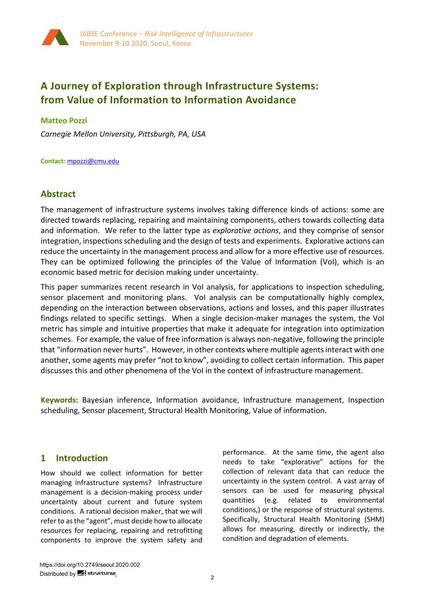|
Abstrait:
|
The management of infrastructure systems involves taking difference kinds of actions: some are directed towards replacing, repairing and maintaining components, others towards collecting data and information. We refer to the latter type asexplorative actions, and they comprise of sensor integration, inspections scheduling and the design of tests and experiments. Explorative actions can reduce the uncertainty in the management process and allow for a more effective use of resources. They can be optimized following the principles of the Value of Information (VoI), which is an economic based metric for decision making under uncertainty. This paper summarizes recent research in VoI analysis, for applications to inspection scheduling, sensor placement and monitoring plans. VoI analysis can be computationally highly complex, depending on the interaction between observations, actions and losses, and this paper illustrates findings related to specific settings. When a single decision-maker manages the system, the VoI metric has simple and intuitive properties that make it adequate for integration into optimization schemes. For example, the value of free information is always non-negative, following the principle that “information never hurts”. However, in other contexts where multiple agents interact with one another, some agents may prefer “not to know”, avoiding to collect certain information. This paper discusses this and other phenomena of the VoI in the context of infrastructure management.
|

